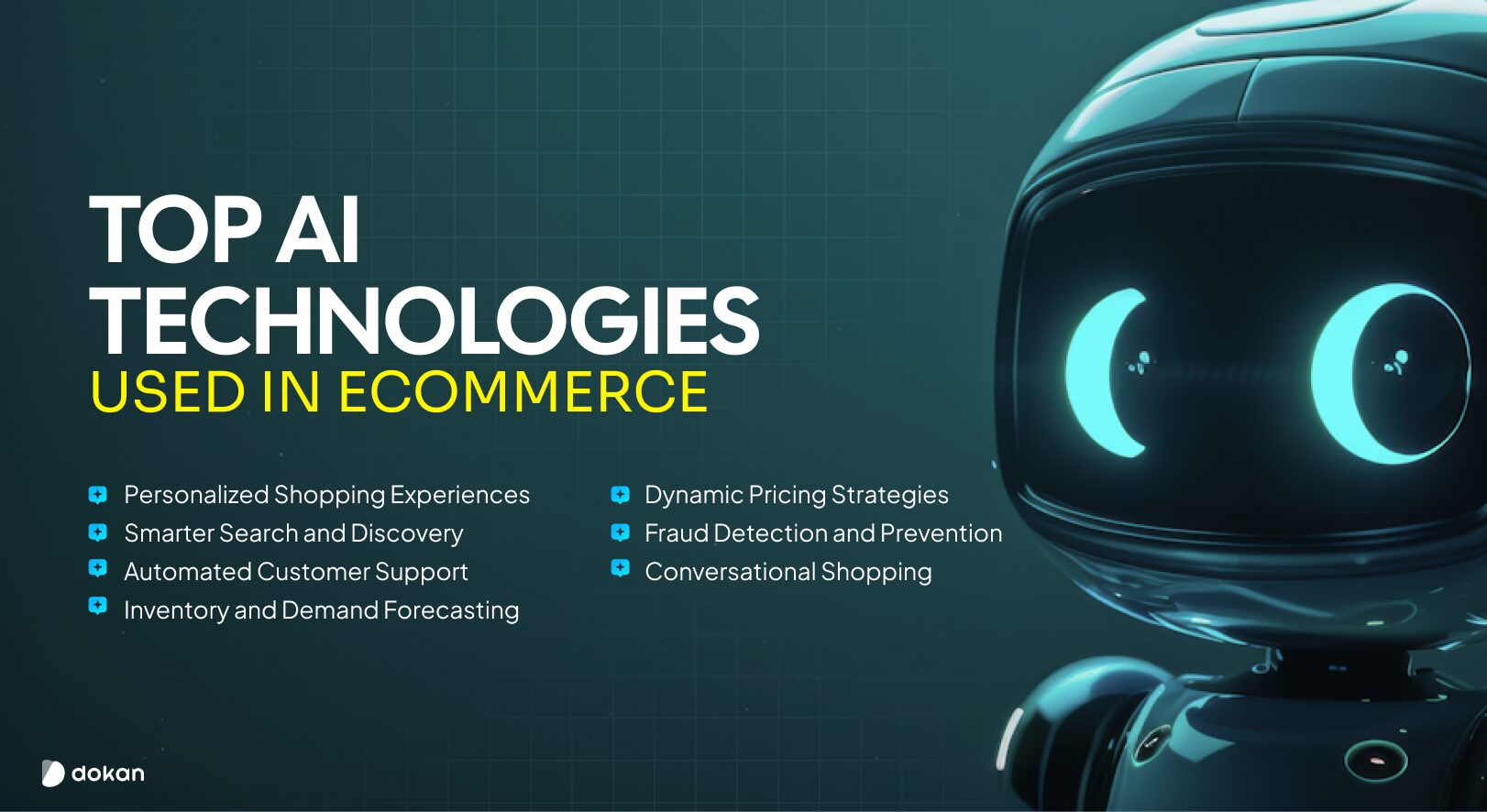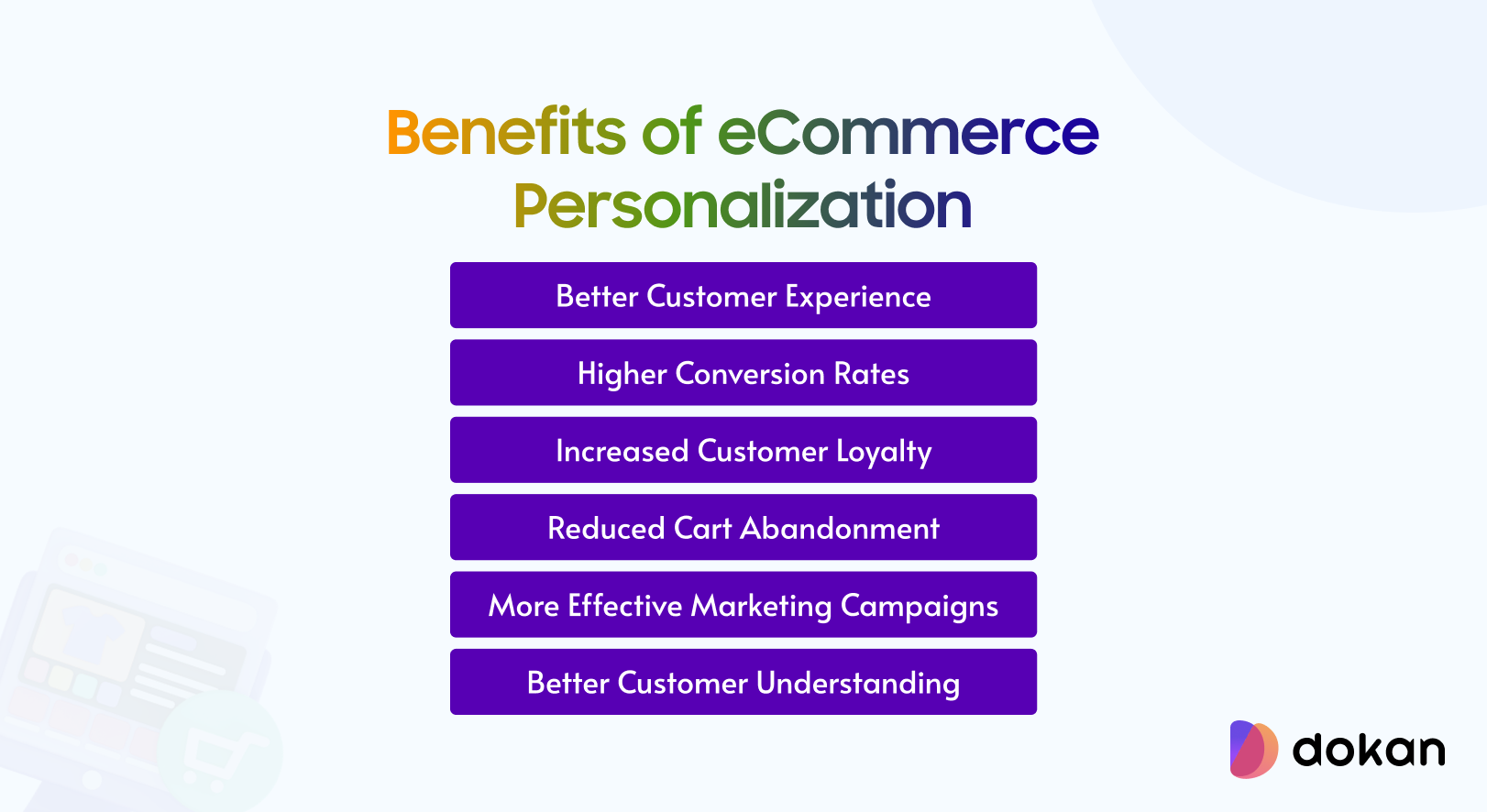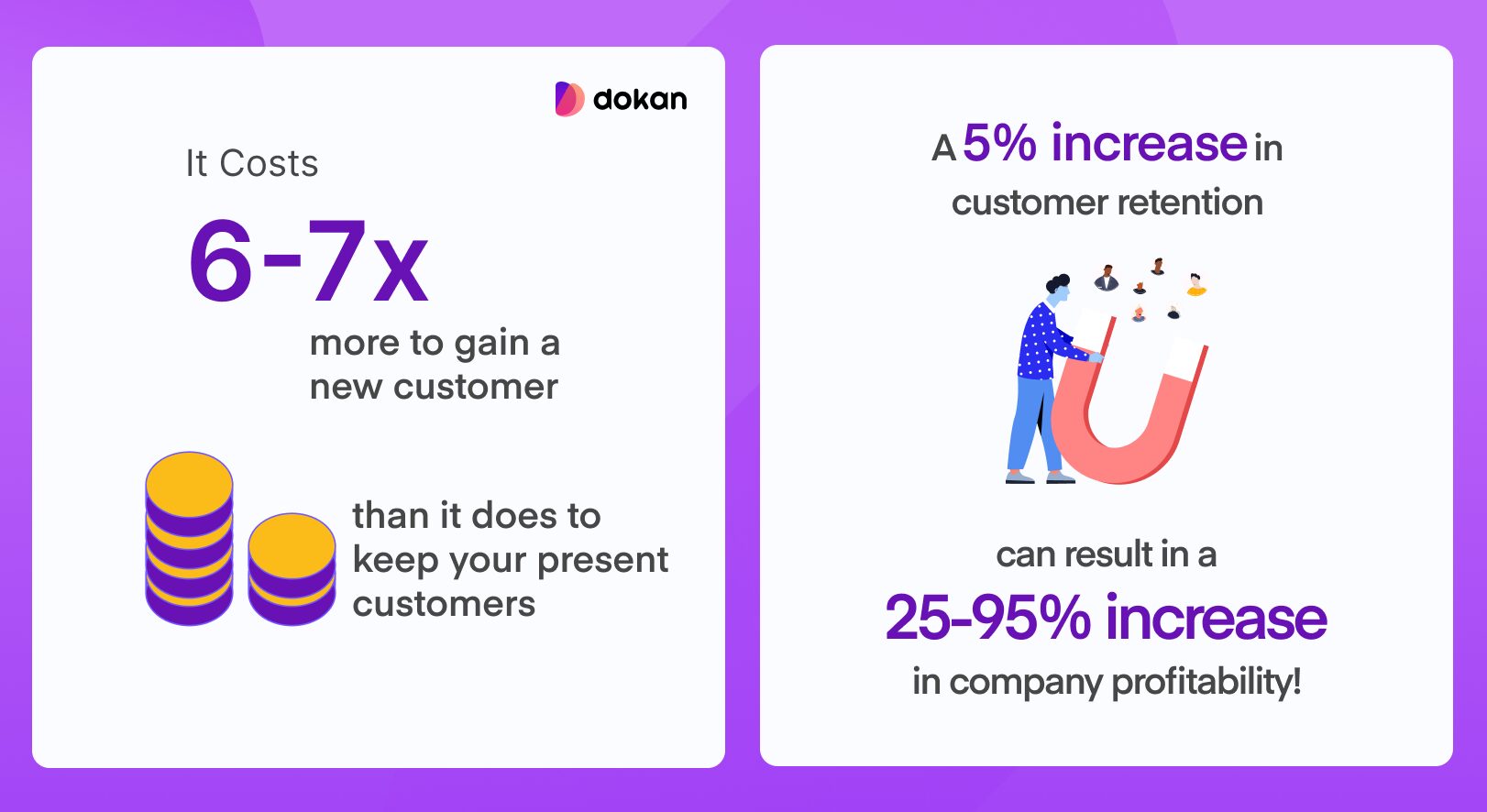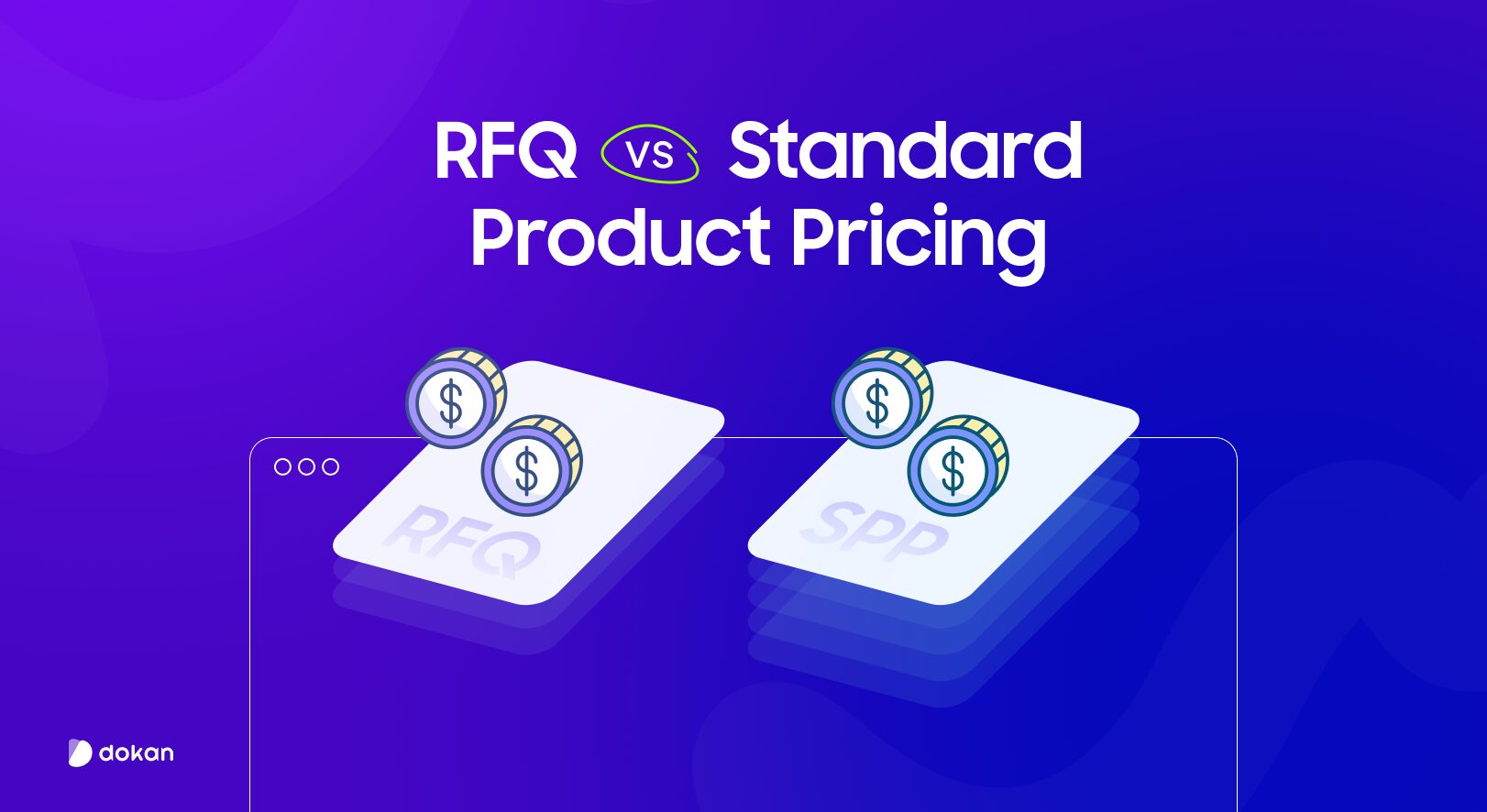Businesses are always seeking ways to differentiate themselves and enhance the customer experience. Artificial Intelligence (AI) has become a key tool in achieving this, making online shopping more personalized and efficient.
AI isn’t just about chatbots or virtual assistants anymore. It’s now integrated into many eCommerce platforms, helping with everything from customer support to customizing shopping experiences.
In fact, by 2025, AI is expected to save eCommerce businesses over $15 billion in customer service costs by automating tasks and enhancing interactions. This growth is driven by the increasing demand for quick, personalized service and the data-driven insights AI can provide.
We’ll cover the benefits and challenges of using AI in customer service and share real examples of businesses that are using AI to improve their customer interactions.
Let’s start-
Advantages and Difficulties of AI in eCommerce
AI is transforming eCommerce by offering a wide range of benefits for both businesses and customers. From improving customer service to providing personalized experiences, AI’s impact is far-reaching.

However, like any technology, its integration into eCommerce comes with both advantages and challenges.
Advantages of AI in eCommerce:
- Improved Customer Service: AI-powered chatbots and virtual assistants offer instant responses to customer queries, leading to faster resolutions and increased satisfaction.
- Personalization: AI can analyze vast amounts of customer data to deliver tailored product recommendations and targeted marketing, enhancing the shopping experience.
- 24/7 Availability: AI systems can operate around the clock, ensuring that customers receive support at any time, even outside of regular business hours.
- Efficient Operations: AI can automate repetitive tasks, such as sorting orders, handling inquiries, and managing inventory, increasing efficiency and freeing up human agents for more complex issues.
- Predictive Analytics: AI can predict customer behaviors, such as buying patterns and future product demand, allowing businesses to prepare for trends and make data-driven decisions.
- Fraud Detection: AI systems can analyze purchase behaviors and patterns to detect anomalies, helping to prevent fraud and secure transactions.
- Cost-Effective: By automating various tasks and processes, AI can reduce operational costs and the need for extensive human resources in areas like customer service and inventory management.
- Better Marketing Insights: AI helps businesses gain insights into customer behavior, optimizing marketing strategies and improving ROI on campaigns.
Difficulties of AI in eCommerce:
- Data Privacy Concerns: AI systems require large amounts of data to function effectively. This raises concerns around data privacy and security, especially with the increasing focus on GDPR and data protection regulations.
- Implementation Costs: Integrating AI into existing systems can be costly for businesses, especially smaller ones. The setup, training, and maintenance of AI systems require significant investment.
- Lack of Human Touch: While AI can provide fast responses, some customers may prefer interacting with a human representative for complex issues or emotional support, which AI can struggle to deliver.
- Data Quality: AI relies on accurate and clean data. If the data is flawed, the system’s recommendations and decisions may not be as effective, leading to poor customer experiences.
- Complexity in Maintenance: AI systems require ongoing maintenance and regular updates to stay effective. Businesses need to continually monitor and refine these systems to ensure they meet customer expectations.
How AI Can Improve Customer Experiences
As we can see, AI is already revolutionizing how eCommerce businesses engage with customers. It is enhancing their experience in various ways.
So let’s dive into some of the ways AI can improve customer experience in eCommerce-
Faster Response Times
AI chatbots and virtual assistants can respond to customer queries almost instantly, eliminating long waiting times. AI can handle multiple queries simultaneously, ensuring no customer has to wait for assistance.
If a customer inquiring about product availability can receive an instant response from an AI assistant without having to wait for business hours, it can lead to higher satisfaction.
24/7 Support
AI ensures that customers get support at any time of the day. Unlike human agents, AI-powered systems are available around the clock, offering consistent customer service even outside normal business hours.
This is particularly important for businesses with global customers across different time zones.

An online fashion retailer can provide 24/7 customer support through AI chatbots that assist with sizing questions, product recommendations, or order tracking.
Enhanced Self-Service Options
AI enables customers to solve problems on their own through smart self-service options. These include FAQs, interactive guides, and automated troubleshooting, which save time and empower customers to resolve issues independently.
An AI system on a tech retailer’s website can guide customers through troubleshooting steps for a malfunctioning product without needing to contact customer service, improving efficiency and customer autonomy.
Boosted Efficiency
AI can streamline numerous business processes that impact the customer experience, from inventory management to order fulfillment. By automating tasks like sorting orders, sending notifications, or tracking deliveries, AI allows businesses to focus on delivering better services.
AI can automatically update customers on their order status, sending real-time notifications about shipment, delivery, or any changes, thus keeping customers informed and improving the overall experience.
Better Personalization
AI uses data to create personalized shopping experiences for customers. By analyzing purchase history, preferences, and browsing behavior, AI recommends products that are likely to resonate with each individual. This level of personalization creates a more engaging and relevant shopping experience.

A customer who frequently buys organic skincare products may be recommended new organic beauty items based on their previous purchases, making them feel like the store understands their needs.
Predictive Analytics
AI can predict customer behavior and market trends by analyzing past data. This allows businesses to anticipate customer needs, stock the right products, and create targeted marketing campaigns.
Predictive analytics helps businesses stay ahead of demand and improve customer satisfaction by offering relevant products before the customer even searches for them.
An AI system can predict that a customer will be interested in spring fashion based on their purchase history and suggest the latest collections, leading to higher engagement and timely purchases
Automated Updates
AI can keep customers updated automatically, whether it’s about product availability, shipping status, or special offers. By eliminating the need for manual follow-ups, customers feel informed and valued.
If a product is back in stock, AI can automatically notify customers who previously showed interest in the item, prompting them to make a purchase.
Consistency Across Channels
AI ensures that customer interactions are consistent across all platforms, whether online, through mobile apps, or via social media. AI can integrate with CRM systems to offer a seamless experience no matter where the customer is shopping from.
A customer who inquires about an item via an eCommerce store’s chatbot will receive the same response and support if they contact customer service through social media, creating a cohesive brand experience.
Sentiment Analysis
AI can analyze customer feedback, reviews, and social media conversations to gauge customer sentiment.
This data can be used to improve products and services, enhancing the overall customer experience. It helps businesses identify areas of improvement quickly, ensuring that they address concerns before they escalate.
AI-powered sentiment analysis might detect a surge in negative feedback about a specific product and notify the brand, allowing them to address the issue proactively with refunds or better product descriptions.
Voice and Image Recognition
AI-driven voice recognition systems, such as virtual assistants, and image recognition tools are transforming the shopping experience. Customers can search for products by describing them aloud or by uploading images, making it easier to find what they need.

A user can take a picture of a pair of shoes they like and, through an AI-powered search, instantly find similar shoes on the website.
Content Creation
AI can generate content, from product descriptions to blog posts and personalized marketing emails. This not only improves content consistency but also allows businesses to produce content at scale, ensuring that customers always have access to up-to-date information.
An eCommerce store selling electronics may use AI to generate product descriptions that highlight features naturally and engagingly, improving both SEO and the shopping experience
Enhanced Product Recommendations
AI-powered recommendation engines suggest products based on past behavior and preferences, encouraging cross-selling and upselling.
By showing relevant and personalized suggestions, customers are more likely to discover products they want to buy, increasing the average order value.
If a customer buys a smartphone, AI might recommend accessories like cases, chargers, or wireless earbuds, increasing the likelihood of additional sales.
Dynamic Pricing
AI can adjust product pricing based on real-time market demand, competitor pricing, and inventory levels. This allows businesses to optimize their pricing strategy dynamically, ensuring competitive prices without sacrificing profits.
An online retailer may increase the price of a popular product during high demand or apply discounts on slow-moving stock, ensuring that pricing aligns with market conditions.
Visual & Voice Search Capabilities
AI-driven visual and voice search features allow customers to search for products using images or voice commands. This simplifies the shopping process and helps customers find exactly what they’re looking for faster.
A customer can use voice search to say, “Find me a black leather jacket,” and AI will present relevant products based on the query.
Fraud Detection & Prevention
AI can detect fraudulent transactions by analyzing purchasing patterns and identifying suspicious behavior.
This provides businesses with real-time fraud detection and prevention, ensuring secure transactions and protecting both the business and its customers.
An AI system may flag a large order from an unfamiliar location and prompt additional verification steps, helping to prevent fraud and secure the customer’s purchase.
Augmented Reality (AR) & Virtual Try-Ons
AR and AI combine to create immersive shopping experiences, allowing customers to visualize products in real-time. Virtual try-ons, especially in fashion and beauty eCommerce, help customers make better purchasing decisions by “trying” products virtually before buying them.
A customer shopping for glasses can use AR to see how different frames look on their face through the website or app, improving the likelihood of a purchase.

Examples of Great Customer Service Using AI
AI is transforming the way businesses handle customer service, enabling brands to provide more efficient, personalized, and scalable support.
Let’s explore some examples of companies that are leveraging AI to provide exceptional customer service and enhance their overall customer experience.
Amazon
Amazon’s use of AI-powered chatbots and virtual assistants like Alexa revolutionized the way customers interact with the brand.

From handling order inquiries to offering personalized shopping experiences, Amazon uses AI to provide 24/7 support to customers. Their recommendation engine also plays a significant role in personalizing the shopping experience by offering product suggestions based on customer behavior and preferences.
H&M
H&M uses AI to provide an enhanced shopping experience through personalized recommendations and chatbots. Their AI-powered chatbot helps customers find products based on their preferences, size, and previous purchases.
The company has also implemented AI-driven inventory management systems, which ensure that customers can quickly find available stock and products, reducing the time spent searching.
Sephora
Sephora’s AI-powered virtual artist allows customers to try on makeup virtually, helping them visualize products in real-time. The brand also uses AI-driven personalized recommendations to suggest beauty products based on customer preferences, past purchases, and skin tones.

This combination of AI tools allows Sephora to offer a highly engaging and tailored customer experience.
IKEA
IKEA has embraced AI and augmented reality to improve the shopping experience in-store and online. Their IKEA Place app, powered by AI and AR, allows customers to visualize furniture in their own homes before making a purchase.
This makes it easier for customers to make informed decisions and boosts confidence in their purchases.
Starbucks
Starbucks uses AI-powered personalized marketing through its mobile app to recommend drinks and food based on a customer’s past purchases and preferences.
The company’s AI-driven recommendation system helps drive loyalty by offering tailored promotions and rewards, enhancing the customer experience and boosting customer retention.
Use the Power of AI to Increase Customer Satisfaction
AI is undoubtedly shaping the future of customer experience in eCommerce. It offers businesses powerful tools to personalize interactions, enhance support, and improve efficiency.
From personalized product recommendations to 24/7 customer service, AI allows businesses to meet and exceed customer expectations in a competitive market. While there are some challenges, such as data privacy concerns and the need for continuous optimization, the benefits far outweigh the difficulties, making AI an essential asset for eCommerce businesses in 2025 and beyond.
Ultimately, AI is not just a trend; it’s a critical component of modern eCommerce that enhances every aspect of the customer journey.
As businesses continue to adopt and optimize AI-powered solutions, the customer experience will continue to evolve, making it smarter, faster, and more personalized than ever before.
Subscribe to
Dokan blog
We send weekly newsletters, no spam for sure!







Leave a Reply